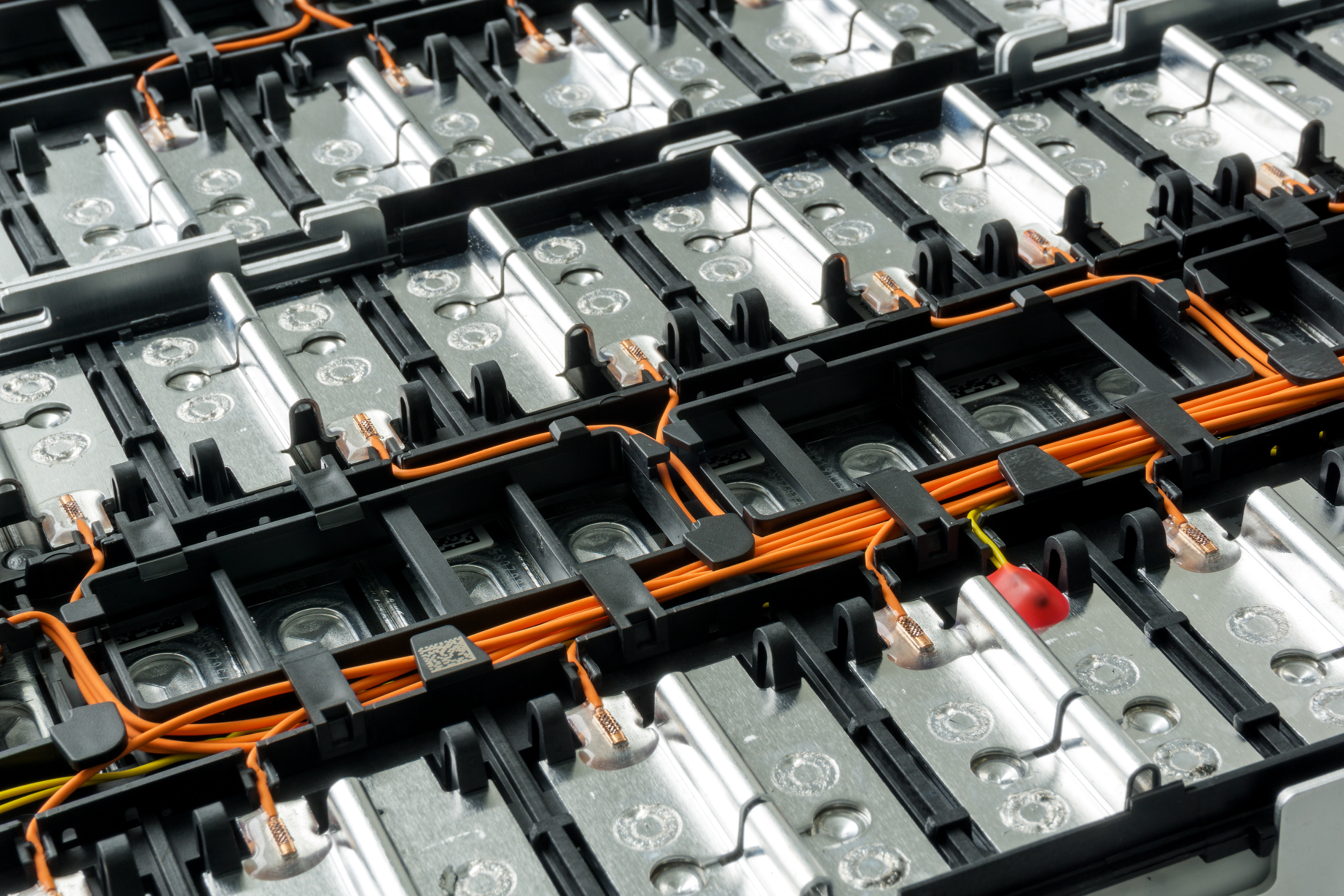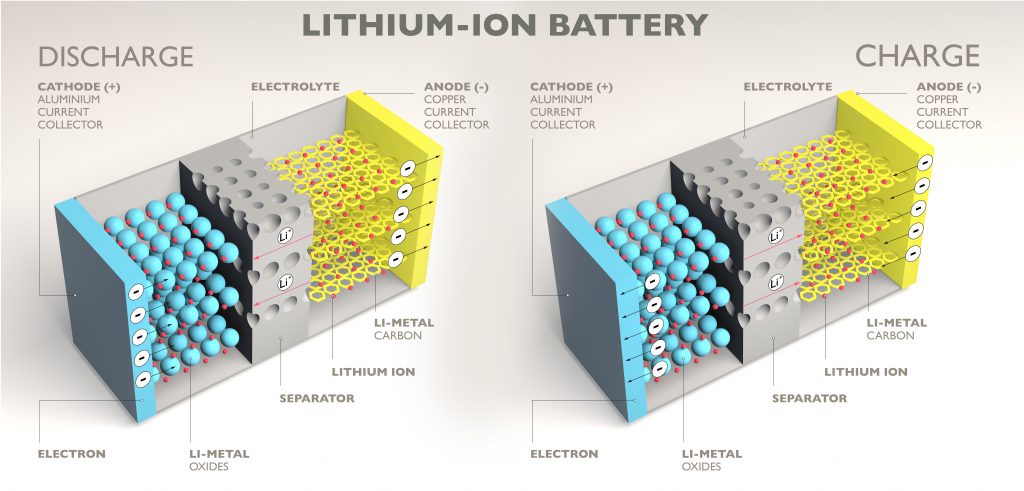Are Lithium Batteries for you, and your Boat?
February 11th, 2022 by team

by B.J. Porter (Contributing Editor)
Lithium Iron Phosphate (also known as LiFePO~4~ or LFP) batteries are a hot topic in boating circles these days, and for good reason. A well done and appropriate LiFePO~4~ installation can make an enormous difference in your boating.
The key word is “appropriate” because lithium batteries are not the right call for every boat and boater, and rushing out to get some just because they’re a hot topic can be expensive and frustrating, while giving you minimal rewards.
So are lithium batteries right for you and your boat? The answer, as always, depends on the specifics of your boat and how you use it.
What Lithium Does for You

Back when I started writing for this blog, we ran a feature on the advantages and disadvantages of LiFePO~4~ batteries, so I won’t do a deep dive again. But it’s important to know why some sailors get excited about them. Some strengths of Lithium include:
- A higher energy density than lead-acid, which boils down to they’re much lighter and smaller for the same amount of energy storage.
- You can safely discharge 80% of LFP battery capacity, versus 50% for lead-acid. Coupled with the lighter weight, you can pack about four times the useable power in an equal weight of lead-acid batteries.
- They can take a massive charge current, and they can take 100% of that charge until they are full. So there is no tapered charging as the battery fills.
- LFPs can deliver very large currents when needed, and the power loss from high current use is minimal.
- Voltage drops are lower as the battery discharges, so you get better performance from your electric devices even with a discharged battery. The battery has to be pretty low for your lights to dim.
So with all these advantages, why doesn’t everyone rush out and install them? The short answer is that they are more expensive and technically challenging, so the benefits aren’t justified for every sailor.
What it Costs
While the cost of LiFePO~4~ cells has dropped over the last few years, they are still more expensive per amp-hour than lead-acid batteries. But the expense of lithium is more than just buying the batteries. There are a few finicky details about how they work that drive up the cost of installations.
- Lithium cells are very sensitive to being over and undercharged, and to charge voltages. A safe installation needs a Battery Management System (BMS) to protect the batteries from accidental damage during use.
- You can not program many older chargers and alternators can for lithium, so you may need new charging.
- The installation can be more complex, requiring professional help.
- Ongoing operations require a little more care and management than simpler battery technologies.
- Many “drop in” lithium batteries are poorly designed, and may not work as advertised.
The last problem is getting better, as the market is shaking out some of the lower end “drop in” solutions that took your money and didn’t last. But there is a significant upfront expense to upgrading to lithium that puts a lot of casual boaters off of them.
Safety First
No discussion about lithium batteries would be complete without discussing safety, because there is so much misinformation about LiFePO~4~ technology out there.
First, it’s important to note that EVERY battery technology has some risks with it. If you short out a lead-acid battery, you can start a fire, and overcharging them can cause the battery to leak explosive hydrogen gas. Risks from bad installations and misuse are no different for lithium.
And everyone knows the risks of lithium batteries in cell phones, battery packs and other small devices, right?
Except, Lithium Iron Phosphate batteries are a completely different technology. Cell phones and most small electrical devices use lithium polymer batteries, which have higher risks of fire and explosion than LiFePO~4~.
So when someone tells you about horror stories of boat fires from lithium batteries – check the sources. Most often, the battery in question is from a cell phone, the battery pack on an electric surfboard, or some other lithium polymer device. LiFePO~4~ batteries are quite difficult to set on fire, and a good BMS will have sensors to prevent any thermal runaways long before fire becomes a risk.
Should You Consider Them?

The boaters who benefit the most from lithium batteries are those who spend a lot of time at anchor, and those who are extremely weight conscious.
Full-time cruisers and blue water sailors LOVE lithium batteries, and if your plans include this type of sailing, you should absolutely consider an upgrade to lithium. They transformed our on-board life, cutting our generator run time by 2/3 and giving us days of copious power between recharges.
And the other group are the weight conscious. Racers also love lithium because it gives them plenty of power for a fraction of the weight. And weight is everything when you’re racing; I’ve known sailors who cut the handles off their toothbrushes to take on offshore races! I still blush when I think about what I spent on a new halyard that saved five pounds aloft back in my racing days…
But for the casual racer and weekend cruiser, do they make sense? At the current price point, unless you have money to burn or are an ardent technophile, you might hold off retrofitting them. Most lead-acid battery installations can take you through a weekend of cruising, and replacing an old battery is comparatively cheap. If you stay in marinas most of the time, they will have no impact on your experience.
- Posted in Blog, Boat Care, Boating Tips, Cruising, Fishing, iNavX, Navigation, Reviews, Sailing, Sailing Tips
- 4 Comments


February 20, 2022 at 4:33 am, Kent Robertson said:
I am finding it difficult…no impossible…to buy affordable insurance for my 53′ ketch (worth ~350K) if I make the switch to Lithium. The only quote I’ve gotten as a USA flagged vessel with Lithium batteries was for $15K/yr. with coverage between the 20th Latitudes worldwide. When you add that to the $10K+ for the switch, it’s the only thing keeping me from jumping in.
May 09, 2022 at 2:54 pm, B.J. Porter said:
Ouch, that’s brutal. Is it a bluewater policy or just coastal?
We didn’t have trouble getting bluewater coverage for our boat, even after I installed my own bank. But it was already insanely expensive even without considering that.
May 09, 2022 at 9:03 pm, Kent Robertson said:
Blue Water, S Pacific. Does your provider know you have Lithium?
May 12, 2022 at 4:21 pm, freelance said:
The did, I informed the broker who booked the insurance every time and asked to make sure there were no problems.